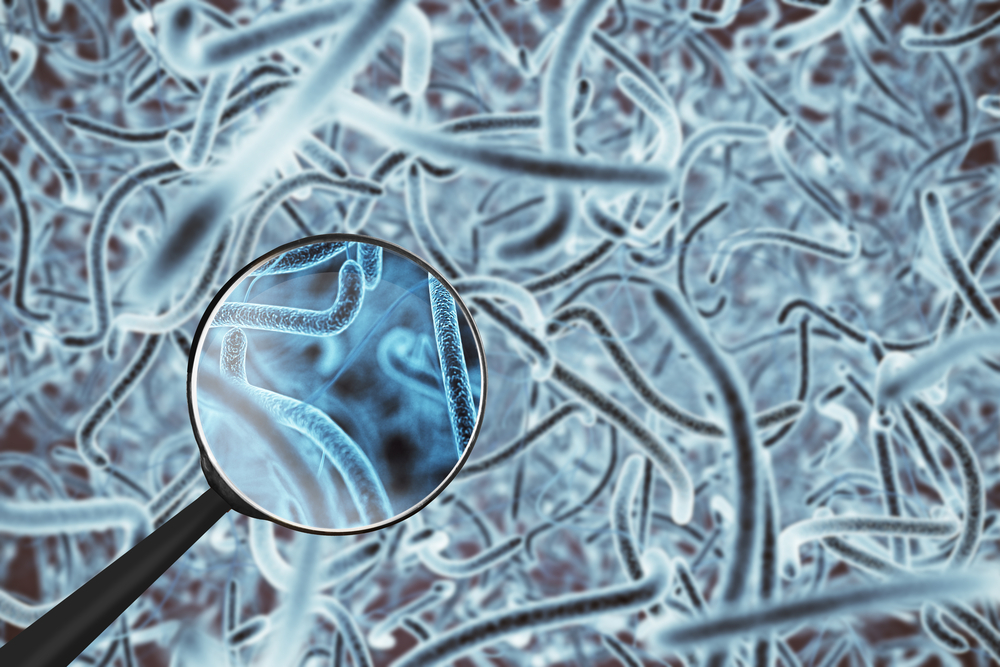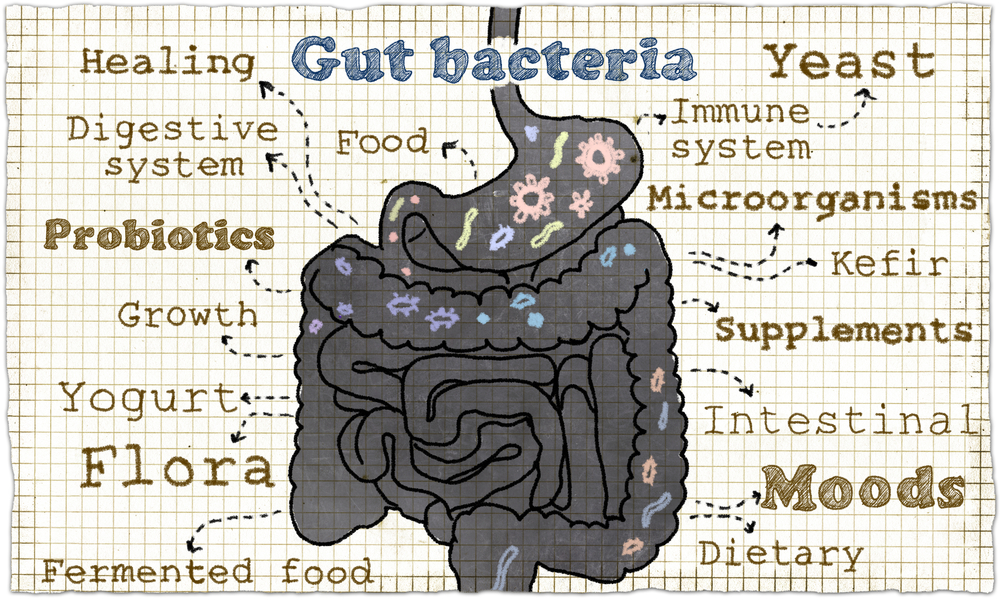Microbiome and microbiota - definitions and difference
Published on Microbiome Journal in June 2020, an article by a team led by Dr Gabriele Berg argues for a harmonisation of the definitions used to determine the differences between the microbiome and the microbiota. The authors proposed the following the wording of the definitions of the words "microbiome" and "microbiota":
MICROBIOM is the characteristic genetic composition of micro-organisms inhabiting a definable area with distinct physical and chemical characteristics. The concept of the microbiome also refers to inhabited places called 'theatre of activity', which form specific eco-niches. Microbiomes forming dynamic and interacting micro-ecosystems are integrated into a single macro-ecosystem being an essential factor in its proper, healthy functioning.
In turn MICROBIOTA (including, among others. gut microbiota) is a composite of microorganisms belonging to different kingdoms (prokaryotic and eukaryotic organisms). Their 'theatre of activity' also includes microbial structures, metabolites, phages, viruses, transposons and DNA debris embedded in a particular habitat.
The difference is therefore subtle, and in practice the terms are often used interchangeably.
Gut microbiota - a good example
The microorganisms in the gut microbiota live in a symbiotic relationship with each other. Their presence is beneficial to humans as long as they manage to maintain a homeostatic state in the body. It is estimated that The intestinal microbiota is inhabited by up to approx. 1000 different species of microorganisms.
- The gut is home to the largest population of microorganisms (there are far more of them than in the microbiota of the skin or genitals)
- Microbial cells and their genetic material (i.e. the microbiome) populate the human body from the moment of birth. The relationship of micro-organisms to man becomes crucial from the point of view of human health.
- The mass of organisms inhabiting the gut microbiota is approximately 2 kgand its composition is unique to each individual
- The intestinal microbiota is responsible for assimilation of nutrients from food is the key good resistance, as well as influences brain function and host behaviour
Historically, the gut microbiota has been referred to as the 'bacterial microflora'. Already at the end of the 20th century, it was discovered that The composition of the microbiota has an enormous impact on the anatomy, physiology and immunity of the host, i.e. the human being.
Living with us in a symbiotic relationship, the micro-organisms populating the microbiome are involved in the fight against external pathogens. By defending us and they also defend their environmentwhich keeps them alive.
Among the so-called good bacteria also live harmful pathogens. In a healthy body, the balance between them is maintained and a functioning immune system prevents them from spreading and developing infections.
Unique The composition of the microbiome also influences mood, behaviour and the human psyche.

The microbiome - why is it important?
The microorganisms that populate the human microbiome have evolved over millions of years. They are an inseparable part of life on earth. The inhabitants of the microbiota have important functions in the inhibition and spread of diseases and disorders such as:
- Asthma
- Autism
- Cancer
- Celiac disease
- Colitis
- Diabetes
- Eczema
- Heart diseases
- Malnutrition
- Multiple sclerosis
- Obesity
The human microbiome and nutrition
Microbes in the gut are involved in digestive processes. They help to metabolise complex elements from meat and vegetables. Without their participation, digestion of some complex plant sugars would be impossible. Metabolic processes within the microbiotic colony are responsible for feelings of hunger and satiety.
The biodiversity of the microorganisms that make up the composition of the microbiome is directly dependent on the diversity of the food provided. The more diverse the diet, the more diverse the flora.
The microbiome and immunity
At birth, the microbiome of every creature begins to be populated by bacteria from the environment. In the case of humans, bacteria begin to enter the newborn's body as it passes through the cervix. Without this, the adaptive immunity of the newborn would not exist.
The immune system learns to cope with pathogens over time, and the organisms arriving to populate the microbiome know exactly how to deal with the threats. By the way, they also know that the host organism is essential for their survival and development.
Research also indicates that too sterile an environment early in life can lead to autoimmune diseases and allergies.
Microbiota and behaviour
It is not without reason that the gut microbiota is said to be the 'second brain'. The activity of the microbes hosted in our digestive tract releases molecules that modulate the nervous system. Receptors of the endocannabinoid system transmit the signals occurring in the gut to the brain where they are interpreted and cause (or not) specific reactions. There may be increased hormonal activity, e.g. increased release of dopamine and serotonin.
There are opinions linking the quality and efficiency of the gut microbiota to psychological disorders such as depression or autism.
Gut microbiota and diseases
The biodiversity of the gut microbiota is crucial for the health of the gastrointestinal system.
For example, low diversity of the gut microbiome is associated with diseases such as irritable bowel syndrome (IBD), obesity and type 2 diabetes.
Including prebiotics and probiotics in the diet has a stimulating effect on the composition of the microflora, reducing the risk of metabolic diseases.
The gut microbiome also influences energy metabolism, intellectual development and human cognitive function.
A major problem in modern medicine is the overuse of antibiotics. These drugs negatively affect the intestinal microbiota leading over time to the development of antibiotic-resistant superbacteria.
Over and above this "good" bacteria compete with "bad" pathogens making infection and disease more difficult. Some of these good microbes can even release anti-inflammatory compounds.
It is believed that caring for an efficient and a balanced microbiome is key to preventing disease.
Good bacteria in the digestive tract and intestines
The good bacteria of the microbiome include:
- protective bacteria that inhibit the proliferation of pathogenic microorganisms, are responsible for the integrity of the intestinal tissue, nourish the intestines; here we have Lactobacillus i Bifidobacterium
- bacteria that stimulate immunity, minimise inflammation and promote antibody production; these include: Enterococcus and E. Coli, the latter of which can develop a pathological condition
How to take care of the biodiversity of the gut microbiota?
To take care of the microbiome and bioróżhe diversity of the gut microbiota is worth starting with the diet:
- Eat more pickles - cabbage, cucumbers, beetroot and even fruit
- Kefir and yoghurts are also helpful
- Choose products rich in fibre, inulin and starch
- Consider probiotic supplementation
The following will also prove beneficial lifestyle changes - increased physical exercise excellent action on the microbiome.
Avoid alcohol and smoking - are two highly destructive addictions for the microbiota.
Ensure a good night's sleep. Regeneration during sleep will improve the functioning of your microbiome.
The most devastating for the microbiota is the stress - try to avoid it, minimise and eliminate from your life as much as possible.
If possible avoid antibiotics and chemotherapeutics - destroys both pathogens and the good, essential bacteria that build up the normal bacterial flora in your body.

The microbiome and the endocannabinoid system
There are theories indicating a modulatory effect of endogenous cannabinoids on the microbiota in the area of the processing of pain stimuli of the central and peripheral nervous system. Incidentally, both of these functional areas of the body are involved in inflammatory processes.
The endocannabinoid system as a signalling system transmits information from the gut to the brain. There they are interpreted and lead to a specific feedback response. It can be said that ECS serves as a communication bridge between the microbiome and the body and brain. It is through this that the relationship between the human organism as host and the micro-organisms as resident guests is symbiotic.
Receptors the endocannabinoid system are densely distributed throughout the digestive system including in the gut. The gut microbiota and the endocannabinoid system are integral to the gut-brain axis.
There are studies indicating significant effects of cannabinoid consumption from hemp including CBD on the quality and function of the intestinal microflora. It is through the endocannabinoid system that this influence is realised. Also THC affected the action of some bacteria microbiota, which in response produce short-chain fatty acids that minimise inflammation.
Sources:
- https://zachbushmd.com/
- https://microbiomejournal.biomedcentral.com/articles/10.1186/s40168-020-00875-0
- https://www.sciencedirect.com/science/article/pii/S2452073X21000027
- https://www.jimmunol.org/content/198/1_Supplement/219.20
- https://www.projectcbd.org/wellness/gut-microbiota-endocannabinoid-system
